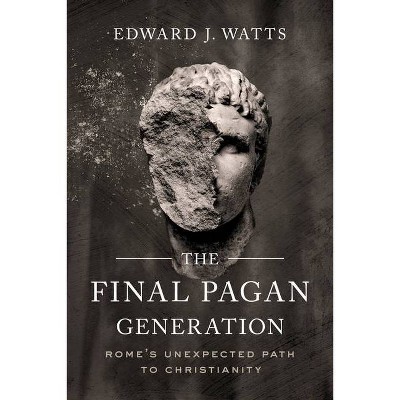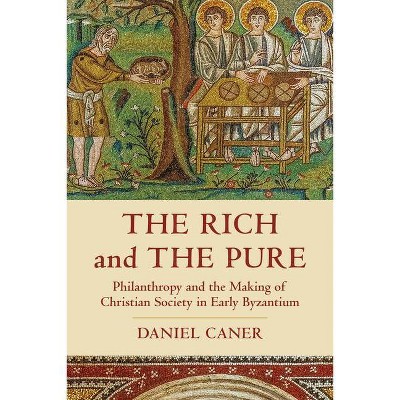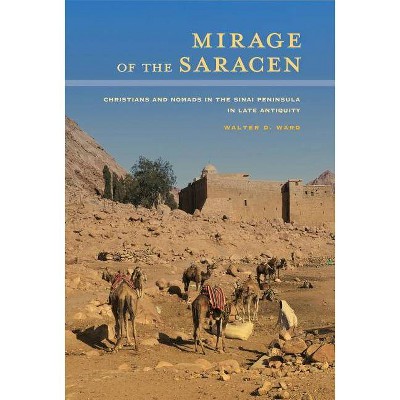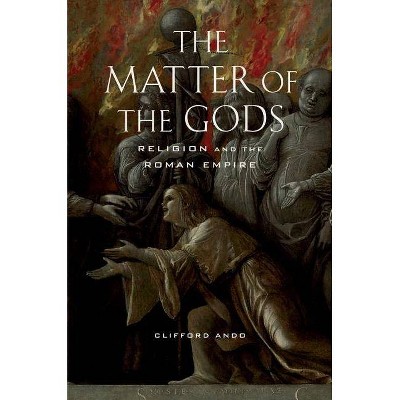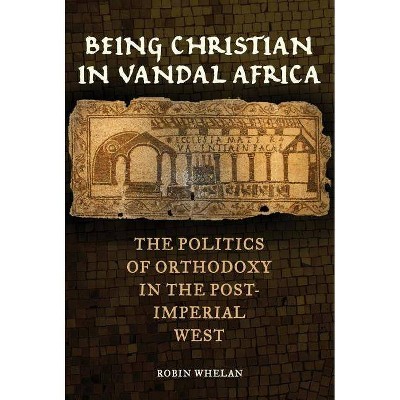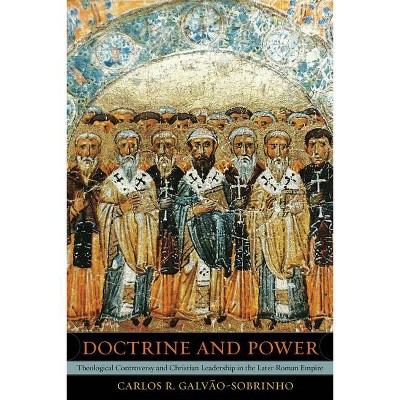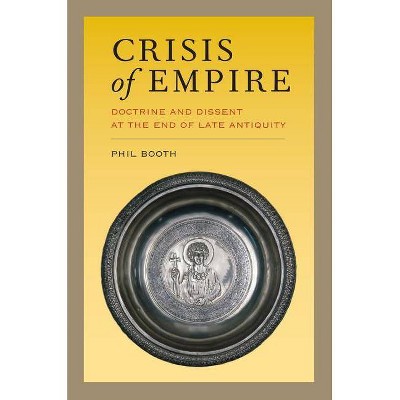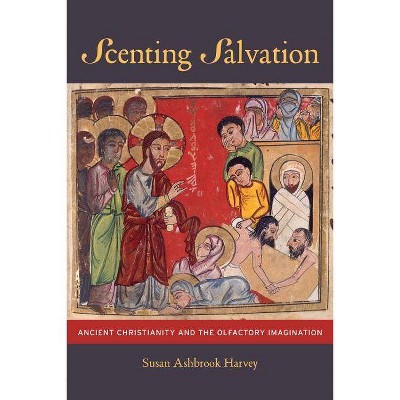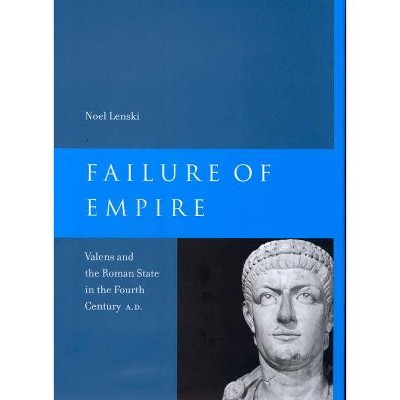The Final Pagan Generation, 53 - (Transformation of the Classical Heritage) by Edward J Watts (Hardcover)

Similar Products
Products of same category from the store
AllProduct info
<p/><br></br><p><b> About the Book </b></p></br></br>"The Final Pagan Generation recounts the fascinating story of the lives and fortunes of the last Romans born before the Emperor Constantine converted to Christianity. Edward J. Watts traces their experiences of living through the fourth century's dramatic religious and political changes, when heated confrontations saw the Christian establishment legislate against pagan practices as mobs attacked pagan holy sites and temples. The emperors who issued these laws, the imperial officials charged with implementing them, and the Christian perpetrators of religious violence were almost exclusively young men whose attitudes and actions contrasted markedly with those of the earlier generation, who shared neither their juniors' interest in creating sharply defined religious identities nor their propensity toward violent conflict. Watts examines why the 'final pagan generation'-born to the old ways and the old world in which it seemed to everyone that religious practices would continue as they had for the last two thousand years--proved both unable to anticipate the changes that imperially sponsored Christianity produced and unwilling to resist them. A compelling and provocative read, suitable for the general reader as well as students and scholars of the ancient world"--Provided by publisher.<p/><br></br><p><b> Book Synopsis </b></p></br></br><i>The Final Pagan Generation</i> recounts the fascinating story of the lives and fortunes of the last Romans born before the Emperor Constantine converted to Christianity. Edward J. Watts traces their experiences of living through the fourth century's dramatic religious and political changes, when heated confrontations saw the Christian establishment legislate against pagan practices as mobs attacked pagan holy sites and temples. The emperors who issued these laws, the imperial officials charged with implementing them, and the Christian perpetrators of religious violence were almost exclusively young men whose attitudes and actions contrasted markedly with those of the earlier generation, who shared neither their juniors' interest in creating sharply defined religious identities nor their propensity for violent conflict. Watts examines why the final pagan generation--born to the old ways and the old world in which it seemed to everyone that religious practices would continue as they had for the past two thousand years--proved both unable to anticipate the changes that imperially sponsored Christianity produced and unwilling to resist them. A compelling and provocative read, suitable for the general reader as well as students and scholars of the ancient world.<p/><br></br><p><b> From the Back Cover </b></p></br></br><p>"Edward Watts has produced a scintillating portrait of the transformative fourth century of the Roman Empire. He employs the creative device of looking at the history of an era through the eyes of its own generation--like our Woodstock generation or Gen X--to show how its men and women witnessed, experienced, and engaged with the big and little events of their day. The results are variously quotidian and startling, ordinary and surprising, but never banal or entirely as expected. Understanding the oceanic changes in belief and behavior of the 'last pagan generation' in real time helps readers see that world from the perspective of the persons who lived it and not, as we often do, as if in some cosmic rear-view mirror. A real page turner!"--Brent D. Shaw, Andrew Fleming West Professor in Classics at Princeton University <p/> "Edward Watts is a leading authority on the intellectual history of the later Roman Empire. Deeply nuanced and profoundly humane, this book shows what it meant to live through the Roman Empire's initial transition to Christianity. In clear and eloquent prose, Watts introduces us to a wide range of persons who responded to the Emperor Constantine's conversion in widely different ways, from hostility or distaste to excitement and profound life changes. Watts provides a fresh and exciting vision of one the great generations of Mediterranean history, whose choices shaped the legacy of antiquity and the future of Christianity. This is a book that should be of interest to anyone who wants to understand the rich variety of religious experience."--David Potter, Francis W. Kelsey Collegiate Professor of Greek and Roman History at the University of Michigan</p><p/><br></br><p><b> Review Quotes </b></p></br></br><br>"Watts undertakes a forensic examination . . . seeking to understand what it was like to live through a moment of profound social and political transformation that leaves your world an entirely different place by the end of your life. It's a question with profound implications for the present. . . . a fascinating chronicle."-- "PopMatters"<br><br><i>"The Final Pagan Generation</i> offers an innovative, beautifully written, and meticulously up-to-date social and political history of the fourth century." -- "Phoenix, Journal of the Classical Association of Canada"<br><br>"Watts demonstrates his mastery of both primary and modern sources . . . The text is virtually flawless."-- "The Classical Journal"<br><br>"Accessible and engaging for students and general readers."-- "Bryn Mawr Classical Review"<br><br>"Accessible to non-specialists and useful as an undergraduate text in courses...an absorbing, erudite, and highly useful book from which anyone studying late antiquity or early Christianity will profit."-- "Journal of Early Christian Studies"<br><br>"Edward Watt's <i>The Final Pagan Generation</i> is among the best works of academic history I've ever read."--Yuval Levin, "National Review"<br><br>"Watts builds his case through literary evidence such as letters, orations, poems, and contemporary historical accounts. What emerges is a vivid account of the final pagan generation and a detailed view of their social and professional environment."-- "Journal of Late Antiquity"<br><br>A fantastic slice of classical history.-- "Foreword Reviews"<br><br>Well researched and proficient . . . awash with well-organized historical information.-- "Library Journal"<br><p/><br></br><p><b> About the Author </b></p></br></br><b>Edward J. Watts</b> is Alkiviadis Vassiliadis Endowed Chair and Professor of History at the University of California, San Diego. He is the author of <i>Riot in Alexandria</i> and <i>City and School in Late Antique Athens and Alexandria</i>, both from UC Press.
Price History
Cheapest price in the interval: 34.99 on October 22, 2021
Most expensive price in the interval: 34.99 on November 8, 2021
Price Archive shows prices from various stores, lets you see history and find the cheapest. There is no actual sale on the website. For all support, inquiry and suggestion messagescommunication@pricearchive.us
